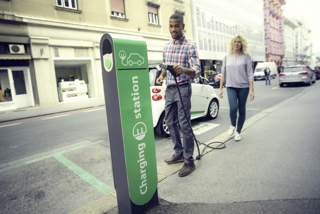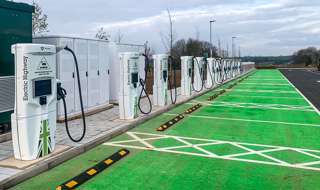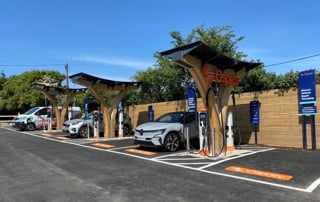Low numbers of local authorities successfully applying for funding for on-street EV chargers has created “huge black holes” in the UK’s infrastructure, says the AA.
Department for Transport data released today shows just 107 councils have made successful applications under the On-Street Residential Chargepoint Scheme (ORCS), with just 2,869 currently installed.
Funding for a further 9,543 has been approved and will be delivered in the coming years.
The AA is calling for an urgent boost in on-street charging to help the 40% of households without a driveway, parking space or garage take part in the transition to electric cars.
Jack Cousens, head of roads policy for the AA, said; “Drivers without dedicated off-street parking looking to switch to electric cars want to have the option for cheaper, affordable charging close to home rather than be reliant on the rapid network.
“The transition to electric needs to convince people that they can easily find a charge, but we need a mix of charging speeds to make life simple for everyone. But there are huge swathes of the country without any on-street charging and that needs to be rectified urgently.
“Earlier this year, the Government said it would need a minimum of 125,000 on-street chargepoints and acknowledged that the current progression in this area was too slow. Very little has changed in order to meet this target.
“So much focus has been placed on the rapid and ultra-rapid network but many will be crying out for action closer to home.
“We are also concerned that rural areas could be left miles behind as on-street charging is often considered to be just an urban problem.”
> Interested in comparing electric vehicle data? Check out our EV tool.
> Interested in ensuring the efficient use of EVs. Check out our dedicated editorial sections: Insight & policy | EV news | Charging & infrastructure | Costs & incentives | Benefit-in-kind | EV case studies | EV road tests






















Login to comment
Comments
No comments have been made yet.